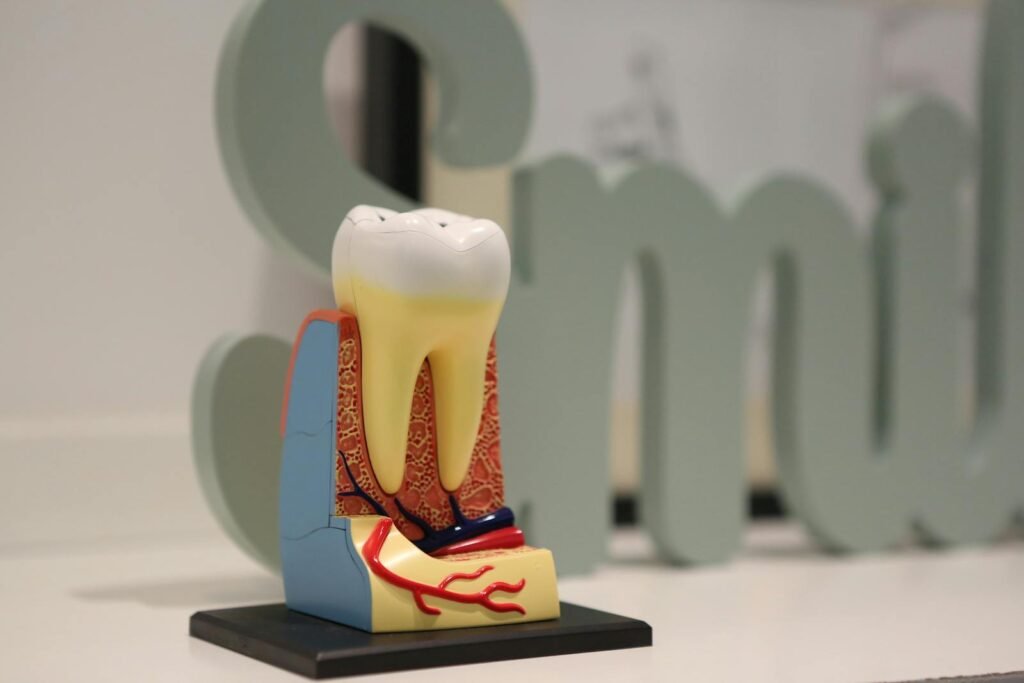Emergency Root Canal
In pain from an infected or injured tooth? Our Boston team offers same-day emergency root canal treatment to relieve pain and save your tooth—walk-ins welcome.

Evening and Weekend Emergency Root Canals in Boston
Severe tooth pain or swelling can strike anytime—not just during business hours. That’s why we offer emergency root canal care on evenings and weekends. Our Boston office prioritizes patients in pain and makes room for urgent visits when you need them most.
You don’t need a referral or insurance to get seen. Just call or walk in—we’re here for you.
Same-Day Root Canal to Relieve Pain and Save Your Tooth
If a tooth is infected but still structurally sound, a root canal can relieve your pain and help you keep your natural tooth. Our team provides gentle, judgment-free care with a focus on fast relief. In many cases, we begin treatment the same day to stop the infection and stabilize the tooth.
Don’t let fear keep you from getting care—root canals today are safe, effective, and often the best way to avoid an extraction.
Signs You Might Need a Root Canal
- Throbbing or persistent tooth pain
- Swelling or tenderness around the tooth
- Darkening of the tooth or visible damage
- Sensitivity to hot or cold that lingers
- Pimple-like bump on the gums (may drain pus)
What Happens During an Emergency Root Canal
We’ll take X-rays to assess the tooth and numb the area fully for comfort. Then, we’ll carefully remove the infected pulp from inside the tooth, clean and seal the root canal system, and protect the tooth with a filling or temporary crown. You’ll receive detailed aftercare instructions and return later for a final crown if needed.
Our goal is to help you feel better fast while saving your tooth—and your smile.
Root canal pain is no joke—but neither is the relief. If you’re in pain, swollen, or can’t sleep because of a tooth, our Boston dental team is ready to help. We offer same-day care, walk-in visits, and a calming experience that puts your comfort first. Don’t suffer when treatment is just a phone call away.

Think You Need a Root Canal?
Call now to speak with our emergency dental team. We’ll guide you through next steps and make sure you’re seen promptly.
Emergency Root Canal FAQs – Answers for Boston Patients
It can be—especially if you’re in pain or have an active infection. We treat root canals urgently when needed to prevent tooth loss or spread of infection.
Modern root canals are relatively painless. We use local anesthesia to ensure you stay comfortable, and most patients feel immediate relief afterward.
Yes, we often begin treatment on the same day, especially if you’re experiencing severe symptoms.
Our dentist will take X-rays and assess your tooth. If the structure is sound, a root canal may allow you to keep it. If not, we’ll discuss your options together.
In most cases, yes. After the root canal, we protect the tooth with a crown to keep it strong and functional.
No problem. We provide clear pricing and flexible payment options for all patients, with or without insurance.
clear, upfront pricing and accept patients with or without insurance. Call us to learn more about payment options.
Yes. We reserve time daily for dental emergencies and welcome walk-in patients in pain.
Stop the Pain. Save Your Tooth.
If you think you may need a root canal, don’t wait. Our Boston office provides emergency care designed to protect your health and comfort. Call or walk in today.
Urgent Root Canal Therapy in Boston
A sudden toothache can strike at the worst possible moment. While sometimes it’s just sensitivity, a sharp, pulsing, or unbearable pain often indicates a deep infection of the tooth’s nerve. When swelling, pus, or fever appear, over-the-counter pain relievers won’t help. In these cases, an emergency root canal can save the tooth and stop the infection from spreading.
In Boston, fast access to care matters. At Emergency Dentist Boston, patients receive same-day evaluation, precise diagnosis, and urgent treatment when needed. Acting quickly prevents tooth loss and serious complications.
What a Root Canal Is and How It Works
Inside each tooth is the pulp—nerves and blood vessels that keep the tooth alive. Bacteria can reach this tissue through a cavity, crack, or trauma, causing inflammation or an abscess. Root canal therapy removes infected pulp, disinfects the canals, and seals them to protect the tooth.
Modern endodontics uses high-precision tools and digital imaging, making treatment safe and typically very comfortable with local anesthesia.
When an Emergency Root Canal Is Necessary
- Sharp, spontaneous tooth pain (often worse at night)
- Persistent pressure or sensitivity when chewing
- Redness, swelling, or a pus-filled bump (fistula) on the gum
- A “raised” feeling—as if the tooth sits higher than others
- Fever with facial or gum swelling
Cracks or chips can also allow bacteria in—even without immediate pain. If you notice these signs, seek urgent care at Emergency Dentist Boston.
Root Canal Pain, Cracked Teeth, and Related Issues
Why the pain happens: Bacterial infection inside the canals creates pressure in a confined space, compressing nerves and causing throbbing pain. Pus buildup or microfractures can worsen symptoms.
Root canal infection risks: Untreated infection may cause abscesses, bone loss, and—in rare cases—systemic spread. Thorough canal disinfection and careful follow-up at Emergency Dentist Boston reduce these risks.
Cracks after trauma or treatment: Pain on biting, sudden “zing,” or intermittent discomfort may indicate a crack. Early diagnostics (including 3D imaging) help save the tooth with bonding, a crown, or bite adjustment.
Recovery and Possible Short-Term Side Effects
Mild soreness or sensitivity for 1–3 days is common. You might notice brief pressure near the gums, slight chewing discomfort, or jaw fatigue after a long visit. A temporary filling can make the tooth feel “high”; if this lasts beyond a few days, a quick adjustment helps.
- Rinse gently with warm salt water
- Use a cold compress intermittently for swelling
- Avoid hard foods on the treated side for 24–48 hours
Contact the clinic promptly if you experience worsening pain, increasing swelling, or fever.
Alternatives—and Why Acting Fast Matters
Extraction is the main alternative when a tooth can’t be restored, but it can lead to shifting teeth, bite problems, bone loss, and the need for implants or bridges. When possible, saving your natural tooth with a root canal is the gold standard—it maintains chewing function, protects jawbone, and delivers excellent cosmetic results once restored with a crown.
Delays allow infection to spread and make treatment more complex. If you notice lingering pain, swelling, pus, or color change, contact Emergency Dentist Boston immediately.
Conclusion
An emergency root canal is often the quickest, safest way to end severe pain and save an infected tooth. With today’s anesthesia and technology at Emergency Dentist Boston, treatment is typically comfortable and recovery is quick. Don’t wait—early care protects your tooth, your health, and your peace of mind.
